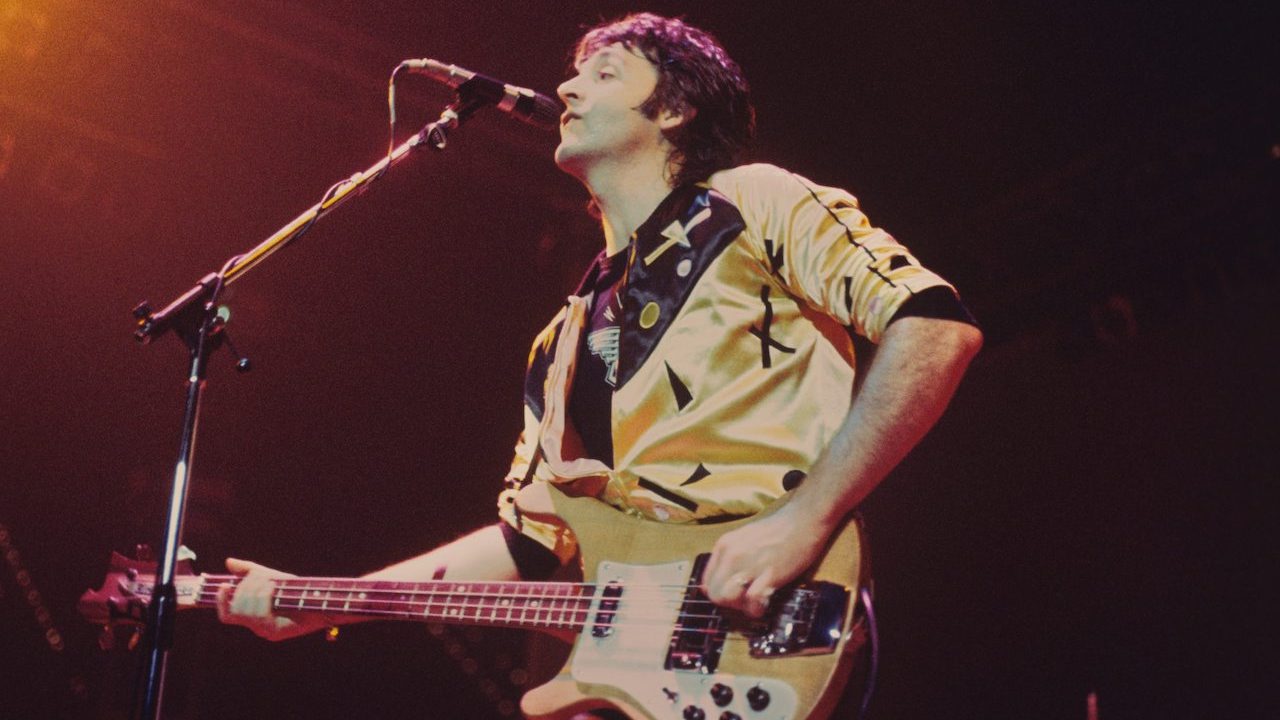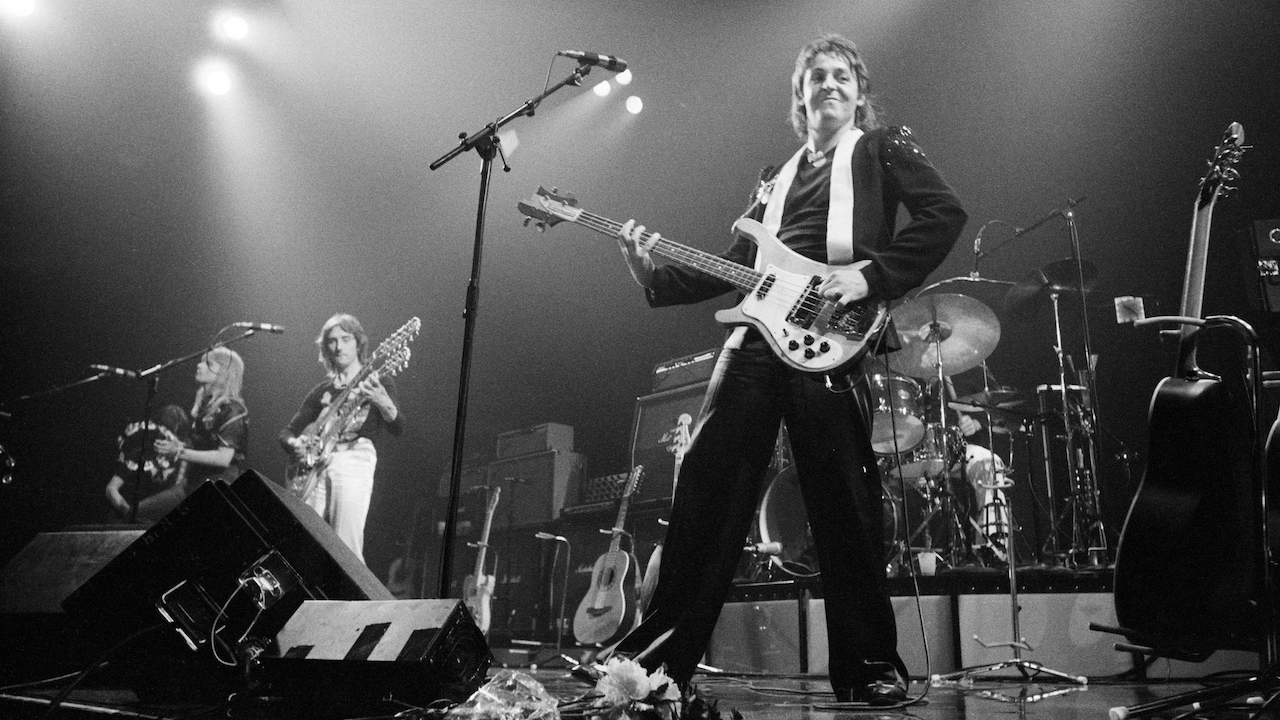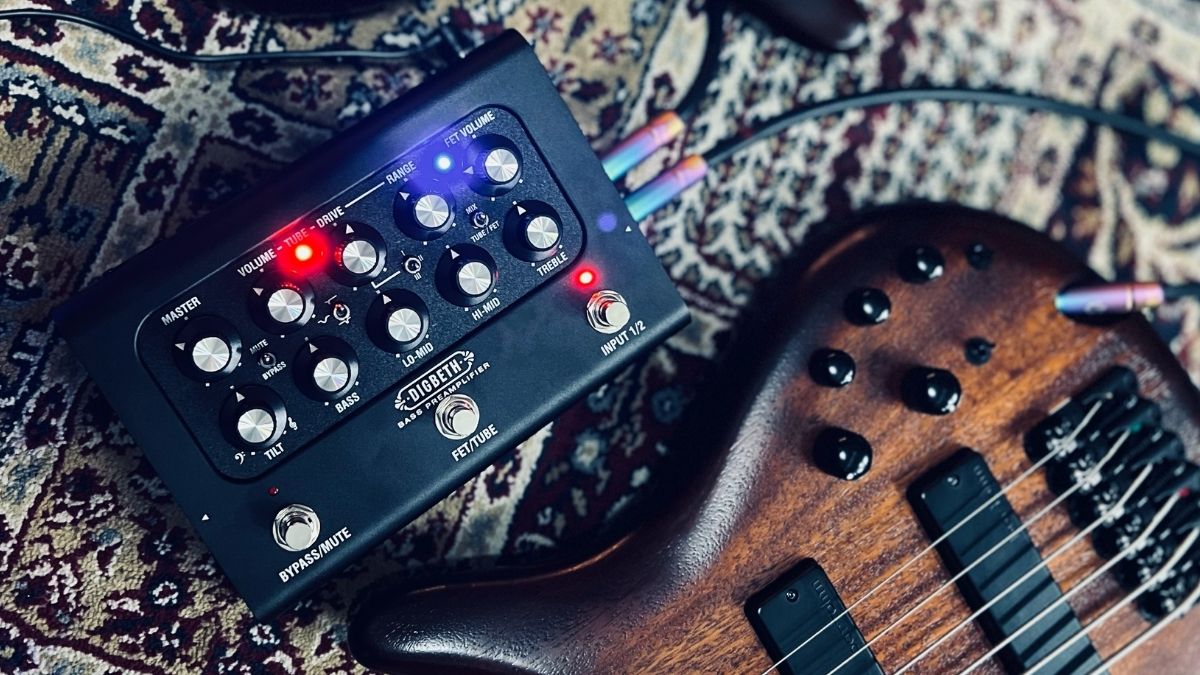“Wings are underrated. It’s difficult to follow The Beatles. It’s like following God”: How Paul McCartney quit the world's biggest band... and triumphed
In 1971 Paul McCartney announced the formation of his new group Wings, who rose in a few short years from college level to an American stadium phenomenon

After The Beatles split in 1970, Paul McCartney continued his career with the release of two solo albums and seven more with Wings, as well as touring at all levels of the music industry, from universities to arenas. It wasn’t all easy going, though. The Beatles’ catalogue contained so much gold, and McCartney knew from day one that his new material was being compared to his golden era.
“Wings are underrated,” said McCartney in the May 2021 issue of Bass Player. “The Beatles was the best band in the world. It’s difficult to follow that. It’s like following God. Very difficult, unless you’re Buddha. Anything Wings did had to be viewed in the light of the Beatles. And the comparisons were always very harsh.”
A low-key debut tour helped win McCartney’s critics over. He first arranged for Wings to play 11 shows at university level. The band, which featured ex-Moody Blues guitarist Denny Laine, guitarist Henry McCullough, drummer Denny Seiwell and Linda McCartney on keyboards, were on a budget, staying in affordable accommodation, a fact noted by sceptics with approval.
McCartney later explained, “The main thing I didn’t want was to come on stage, faced with the whole torment of five rows of press people with little pads, all looking at me and saying, ‘Oh well, he’s not as good as he was.’ So we decided to go out on that university tour which made me less nervous... by the end of that tour I felt ready for something else, so we went to Europe.”
Wings were now an understood quantity, if not entirely a welcomed one: that would require new music, and convincing music at that. “Denny Laine wasn’t John Lennon. Henry McCullough wasn’t George Harrison. That was inevitable,” said McCartney. “The interesting thing is that, looking back on some of the work, some of the stuff, it’s better than you think it was.”

The band’s profile was given a further boost by the enormous success of ‘Live And Let Die’, the theme song for the 1973 James Bond film of the same name. The song remains one of McCartney’s finest ever, a fact noted by Guns N’Roses when they covered it in 1991. The song was nominated for an Oscar and bagged producer George Martin a Grammy for his orchestral arrangement.
“A lot of what we did, because the industry was growing, we would eventually outsell the Beatles in a number of cases... So, you know, there’s a lot to be said for the period after the Beatles, really, and it was a longer time – which was strange when I realised that Wings had been going as long as the Beatles had.”
All the latest guitar news, interviews, lessons, reviews, deals and more, direct to your inbox!
The remainder of the ‘70s was a hugely successful period for Wings, who released a series of platinum-selling albums. The first was the Grammy-winning Band On The Run, which was inescapable through 1974, remaining on the UK chart for 124 weeks. Venus And Mars and Wings At The Speed Of Sound made the group a viable concept even to the most hardened cynic. The inclusion of a few Beatles songs in the setlist was also a turning-point.
Asked how he changed as a bass player during his time with Wings, McCartney explained: “I never quite had the interest that I had during that sort of dream period around Sgt. Pepper and Rubber Soul. With Wings, I was the band leader, the business manager, the this, the that. It was me doing it all.”
“In the Beatles, I’d been free of all of that. We had a manager, we had three other great guys... I could concentrate everything on writing the song, singing harmony with John, or playing the bass, pretty much my role, or maybe playing a bit of piano or guitar or something, so I could put all my energy into that. And I think after that I sidelined the role of bass, a bit, in favour of the role of frontman.”
Paul McCartney will play his first live shows of 2023 in Australia, including Melbourne on October 21st, Sydney on October 24th, and Brisbane on November 1st. Visit his website for more info.

Nick Wells was the Editor of Bass Guitar magazine from 2009 to 2011, before making strides into the world of Artist Relations with Sheldon Dingwall and Dingwall Guitars. He's also the producer of bass-centric documentaries, Walking the Changes and Beneath the Bassline, as well as Production Manager and Artist Liaison for ScottsBassLessons. In his free time, you'll find him jumping around his bedroom to Kool & The Gang while hammering the life out of his P-Bass.


